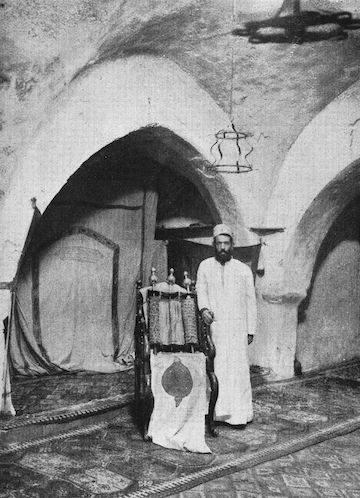Summary | Excerpt | Reviews | Beyond the Book | Read-Alikes | Genres & Themes | Author Bio

This article relates to The Parisian
 Many people are familiar with the phrase "good Samaritan" from the parable in the Bible from which the phrase is derived, but who are the Samaritans? What was their place in history?
Many people are familiar with the phrase "good Samaritan" from the parable in the Bible from which the phrase is derived, but who are the Samaritans? What was their place in history?
In her sprawling historical novel, The Parisian, Isabella Hammad draws attention to this ancient religion. She teases their story, but leaves you wanting more, so here it is.
The story of the Samaritans reaches back to the early days of the kingdom of Israel. Under King Solomon, all of Israel was united, but after his death the nation broke apart into two distinct groups—a new, smaller kingdom of Israel in the north with its capital in Samaria, and the kingdom of Judah in the south.
 When the Assyrians invaded the region in 721 B.C., the Jews in the south fled or were exiled, while those in the north stayed and sometimes even intermingled with the Assyrian invaders. As a result, the Samaritan beliefs became quite different from those of the people of Judah.
When the Assyrians invaded the region in 721 B.C., the Jews in the south fled or were exiled, while those in the north stayed and sometimes even intermingled with the Assyrian invaders. As a result, the Samaritan beliefs became quite different from those of the people of Judah.
It is no wonder then, that in the Bible, interactions with Samaritans are limited. They are considered "unclean" by the Jews. It is described as unbelievable that Jesus, a Jew, chooses to speak to a Samaritan woman and preach to the Samaritans in the New Testament. It is also highly shocking that in the Parable of the Good Samaritan, a Samaritan willingly helps an injured Jewish man.
 Despite their long history of separation, today the Samaritans are fully embraced by the Jewish tradition. They remain somewhat separate, and in fact, their beliefs are now considered to be even more strict than those of orthodox Jews. Over the years, persecution and intermarriage with Muslims in the region dwindled the Samaritan numbers to near extinction. As of today, they number about 800 souls, spread out among two regions in the Middle East—Nablus in Palestine and Holon in Israel. They still worship on Mount Gerizim. Because they have spent many centuries among both Muslims and Jews, the Samaritans are a peaceful bridge between Israel and Palestine.
Despite their long history of separation, today the Samaritans are fully embraced by the Jewish tradition. They remain somewhat separate, and in fact, their beliefs are now considered to be even more strict than those of orthodox Jews. Over the years, persecution and intermarriage with Muslims in the region dwindled the Samaritan numbers to near extinction. As of today, they number about 800 souls, spread out among two regions in the Middle East—Nablus in Palestine and Holon in Israel. They still worship on Mount Gerizim. Because they have spent many centuries among both Muslims and Jews, the Samaritans are a peaceful bridge between Israel and Palestine.
Though their numbers are few, the Samaritans are incredibly resilient. Enduring persecution, witnessing numerous conflicts in the region, yet still preserving their history and traditions, they offer a rare glimpse into the past.
Samaritan worship centre on Mount Gerizim.
Interior of the Synagogue of the Samaritans in Nablus, c. 1920.
Entrance to a modern Samaritan synagogue in the city of Holon, Israel.
Filed under People, Eras & Events
![]() This "beyond the book article" relates to The Parisian. It originally ran in April 2019 and has been updated for the
December 2019 paperback edition.
Go to magazine.
This "beyond the book article" relates to The Parisian. It originally ran in April 2019 and has been updated for the
December 2019 paperback edition.
Go to magazine.
Your guide toexceptional books
BookBrowse seeks out and recommends the best in contemporary fiction and nonfiction—books that not only engage and entertain but also deepen our understanding of ourselves and the world around us.